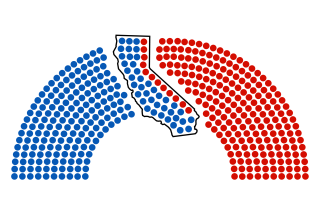Newsletter: Essential Politics: What you need to know about the Iowa caucus results
- Share via
I’m Christina Bellantoni, today’s Essential Politics host. And we finally have votes to analyze, so let’s get going.
Sen. Ted Cruz evoked Ronald Reagan in his Iowa caucus victory speech, declaring he would be the best person to defeat either Hillary Clinton or Sen. Bernie Sanders — pointedly noting the Democrats had no clear winner on their side.
Clinton and Sanders were neck and neck in the first-in-the-nation contest and headed to New Hampshire ahead of next Tuesday’s election there and the long primary season.
With all but one precinct reporting, Cruz, the first one to join the race, was the strong winner Monday. He earned 27.7% of the vote, with 51,649 Iowans backing his candidacy.
Basements and classrooms across the state busted at the seams due to strong turnout, which surpassed the record set in 2012. A big turnout was supposed to benefit Donald Trump, whose boisterous rallies drew many campaign newcomers, but the real estate mogul came in second, with 24.3% or 45,416 votes.
Sen. Marco Rubio was right behind him, earning 23.1% or 43,132 votes.
The rest of the pack:
Ben Carson (9.3%, or 17,393 votes); Sen. Rand Paul (4.5%, 8,478 votes); former Florida Gov. Jeb Bush (2.8%, 5,235 votes); Carly Fiorina (1.9%, 3,483 votes); Ohio Gov. John Kasich (1.9%, 3,473); Mike Huckabee (1.8%, 3,344 votes); New Jersey Gov. Chris Christie (1.8%, 3,278 votes); Rick Santorum (1%, 1,783 votes).
Former Virginia Gov. Jim Gilmore earned just 12 votes, losing to “other” by a tenth of a percentage point.
In 2012, Santorum won the caucuses with 29,839 votes. Huckabee, who won the 2008 caucuses, suspended his campaign.
In his post detailing takeaways from the night, Noah Bierman writes that the photo finish in the Democratic race is a “blow” to Clinton.
Just after midnight in Iowa, she had 49.9% and Sanders had 49.6%, but with some precincts outstanding, Team Sanders made clear they aren’t throwing in the towel.
Still, Clinton presented herself as a winner, taking her own stage in the middle of Cruz’s victory speech and declaring she was “breathing a sigh of relief.”
She collected about half of Iowa caucus-goers with the support of older Democrats, self-described moderates and those who put a priority on a nominee with the experience to be president.
David Lauter and Chris Megerian point out that Sanders’ emphasis on income inequality has particularly thrilled liberals. In an entrance poll, he led by about 2 to 1 among those caucus voters who said that was the most important issue to them. Sanders also led heavily among voters who identified themselves as “very liberal,” among those younger than 45 and those who, like him, identified themselves as independents.
By contrast, Clinton won that poll among self-identified Democrats, as well as voters who identified themselves as “somewhat liberal” or “moderate” and those 45 and older. She also won among those who said their top concern was healthcare or the economy.
Former Maryland Gov. Martin O’Malley suspended his campaign after failing to get 15% of any precinct caucus, and earned plaudits from both Clinton and Sanders for running an issue-based campaign.
Bierman also points out that Iowa’s results showed why money has not, at least so far, bought political happiness. He writes:
Bush led all candidates in television ad spending in Iowa, with nearly $15 million, according to an analysis last week from SMG Delta, as reported by NBC News. All of that money came from Right to Rise, the juggernaut super PAC supporting his presidential bid. His vote in Iowa? 3%. Cruz and his super PAC spent less than half as much ($6 million). That was good enough for the win. Trump, the reality star and business mogul, spent even less, $3.3 million, and took second place.
Want to watch the victory speeches or see the inside of the caucus parties? We’ve got you covered.
What about those undecided caucus-goers like Gabe Searles, whom we featured in Essential Politics Monday?
Searles went for Cruz, telling me as he headed to his caucus site, “I started reading more about Rubio and I didn’t like what I found.” Mostly that was the Florida senator’s plans on taxes. “I ask myself who will stick to their word. My gut tells me Cruz.”
Rubio won the caucus Searles and his wife attended, a meeting with larger-than-expected turnout.
The Iowa millennial we wrote about, Charlie Comfort, stuck with Fiorina, whose 2% finish did not end her candidacy. The former HP CEO skipped her own caucus rally to head straight to New Hampshire, Seema Mehta reports.
Now, we’re on to the next one, as Jay Z says. (That line is so good, I am indeed recycling it from my PBS NewsHour newsletter four years ago.)
Cathleen Decker writes that New Hampshire is a state that promises a wildly different eight-day battle for its contrarian but deeply political voters.
We’ve got a group of reporters in the Granite State to cover what’s next. Keep your eye on Trail Guide for the latest.
CALIFORNIANS IN IOWA
What is it like to be a California state lawmaker campaigning for your favorite candidate in Iowa?
Melanie Mason has the story of Assemblymember Matthew Harper getting out the vote for Cruz.
SOUND FAMILIAR?
Should high school students get to start their days later? Does the Peace Corps merit its own stamp? And should that deadline to ratify the Equal Rights Amendment be scrapped once and for all?
If you have an eerie feeling you’ve heard about these bills before, it’s because they are surfaced again — and again — by members of California’s congressional delegation.
Sarah Wire rounds them up, in honor of Groundhog Day.
TODAY’S ESSENTIALS
— Mason also reports the influential California Medical Assn. has endorsed the November ballot initiative to fully legalize marijuana, the proposal endorsed by Lt. Gov. Gavin Newsom and financed by Facebook co-founder Sean Parker.
— One of California’s most closely watched laws of 2015, the law to allow terminally ill Californians to end their lives with drugs prescribed by physicians, remains in limbo. Why? Because, as Patrick McGreevy reports, the legislative session in which it was approved has yet to be adjourned.
— Campaign finance filings show Los Angeles City Councilman Mitchell Englander holding a narrow lead in fundraising and Rep. Janice Hahn with a strong lead in building a war chest in their bids for local office.
— Los Angeles Mayor Eric Garcetti raised about $7,300 toward his reelection campaign during the second half of 2015, bringing his campaign war chest to more than $2.23 million, according to a report his campaign was filing with city officials Monday. The amount shows a dramatic slowdown in contributions from the first six months of the year, when Garcetti raised over $2.2 million — a record-setting sum for the first stretch of a mayoral re-election campaign.
— The Times editorial board thanks Cruz for defeating Trump.
LOGISTICS
Miss yesterday’s newsletter? Here you go. Did someone forward you this? Sign up here to get Essential Politics in your inbox daily. And keep an eye on our politics page throughout the day for the latest and greatest. And are you following us on Twitter at @latimespolitics?
Please send thoughts, concerns and news tips to [email protected].
More to Read
Get the L.A. Times Politics newsletter
Deeply reported insights into legislation, politics and policy from Sacramento, Washington and beyond. In your inbox three times per week.
You may occasionally receive promotional content from the Los Angeles Times.











